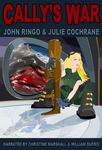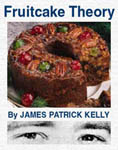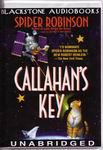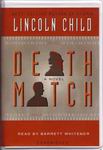
 Gravity
Gravity
By Tess Gerritsen; Read by Campbell Scott
4 Cassettes – 4.5 Hours [ABRIDGED]
Publisher: Simon & Schuster Audio
Published: 2002
ISBN: 0671046187
Themes: / Science Fiction / Disease / Disaster / Biology / Scientist / Medical /
Emma Watson, a brilliant research physician, has been training for the mission of a lifetime: to study living beings in space. Jack McCallum, Emma’s estranged husband, has shared her dream of space travel, but a medical condition has grounded and embittered him. He must watch from the sidelines as his wife prepares for her first mission to the International Space Station. Once aboard the space station, however, things start to go terribly wrong. A culture of single-celled organisms known as Archaeons, gathered from the deep sea, is to be monitored in the microgravity of space. The true and lethal nature of this experiment has not been revealed to NASA. In space, the cells rapidly multiply and soon begin to infect the crew-with agonizing and deadly results
If I had to write a review of this novel in one sentence it would read: “Gravity is like Blood Music for people who’ve never heard of Greg Bear.” Gravity is described by the publisher as “A Novel Of Medical Suspense”, which to me sounds like a crooked way of saying “science fiction for people who don’t like to get caught reading science fiction.” I used to have contempt for the writers of such deceptive doublespeak, but these days I’m more likely to save my contempt for the people who in actuality demand their literature be named in such disingenuous ways. The publishers really aren’t to blame. If they label it as science fiction it won’t get reviewed in the mainstream media – and it won’t be purchased by the fickle public who’d willfully pass up a book with a “science fiction” label in favor of a “medical thriller” or “techno thriller” label. Can someone please explain to me what is so wrong about being caught reading a novel with the words “science fiction” on the spine? I’ve heard people say they won’t buy books because the cover looked too “science-fictiony”. I suggest to you that to not like science fiction is to shut one’s self off from ideas. And though many people claim not to like science fiction, I think if they’d look critically at what they are reading they’d find themselves reading it – just under another name. Be honest with yourself, admit it, you do like it, that is all I ask.
But I stray from the path. Gravity reads a bit like Robin Cook’s Coma, but the major theme has more in common with Michael Crichton’s The Andromeda Strain than it does with hospital politics. The abridgement here is successful and Tess Gerritsen’s descriptions are clear but a bit dumbed-down. As an M.D. she should be fully capable of ratcheting up the science-speak, but for one reason or another chose not to. Despite this, I have few complaints. This is a good time passer. The story has an interesting setting and overall I was left with a satisfactory feeling. That said, I felt no pressing need to track down more of Gerritsen’s ‘Novels Of Medical Suspense.’
A few other problems: Simon & Schuster Audio has not spaced the tapes properly. Each side is of unequal length requiring much fast-forwarding. They also declined to mention when a side is ending, so the reading of a sentence ends as if it were simply a thoughtful pause and then tape plays on for many minutes. This is bad planning – for such a big company there are no good excuses.
Reader Campbell Scott’s precise intonation and clinical reading matches the medical perspective taken by Gerritsen in Gravity. Scott is no cuddly-dear of a voice, nor is he a cuddly-dear of a film actor and yet I find myself always pleased to spend some time with him now and again – he always manages to somehow draw me in even though his stiff demeanor makes me want to shy away.
Posted by Jesse Willis

 Fruitcake Theory
Fruitcake Theory

